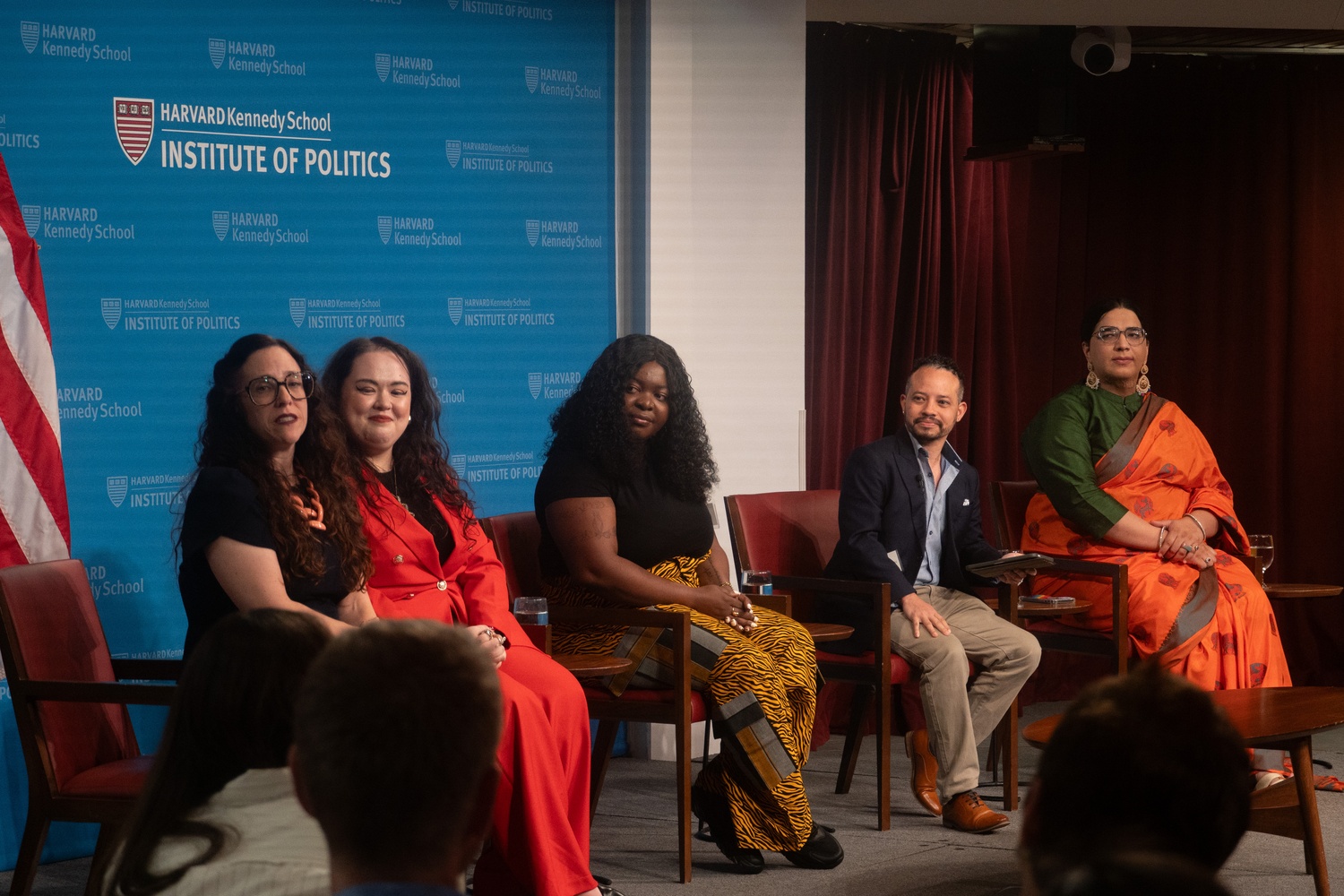
News
Summers Will Not Finish Semester of Teaching as Harvard Investigates Epstein Ties

News
Harvard College Students Report Favoring Divestment from Israel in HUA Survey

News
‘He Should Resign’: Harvard Undergrads Take Hard Line Against Summers Over Epstein Scandal

News
Harvard To Launch New Investigation Into Epstein’s Ties to Summers, Other University Affiliates

News
Harvard Students To Vote on Divestment From Israel in Inaugural HUA Election Survey
‘Happening All Across the Board’: Activists Condemn Global Uptick in Anti-LGBTQ Prejudice at IOP Forum

Activists leading grassroots organizations in Russia, Pakistan, Panama, and Nigeria warned of a rise in hate crimes against LGBTQ people and the rollback of legislation supporting LGBTQ rights around the world at an Institute of Politics forum on Tuesday night.
In the panel, which was co-hosted by Harvard Kennedy School’s Carr-Ryan Center for Human Rights, the organizers discussed the conflict between grassroots movements and politicians that weaponize prejudice against LGBTQ individuals in service of their campaigns.
According to panelist Dilya Gafurova, the executive director of the Russia-based human rights organization Sphere Foundation, hate crimes against LGBTQ people have risen in the last year in Russia.
“We see cases of forced disappearances,” she said. “We see cases of blackmail. We see cases of torture and killing, and it’s happening all across the board.”
Speakers called out similar issues happening in Pakistan. While traveling to Harvard’s campus, Nayyab Ali, the first legally recognized transgender woman to run for a seat in Pakistan’s National Assembly, said she was informed that three transgender people had been murdered in Karachi, Pakistan.
This violence is coupled with a rollback of laws that codified LGBTQ rights, according to Ali. Pakistan made history in 2018 by passing the Transgender Persons Act to protect rights for transgender people, which Ali called one of the “most progressive” trans rights laws in the world.
According to Ali, in 2023, the Federal Shariat Court of Islamabad “struck down some basic fundamental clauses of that law,” including the right to perceived gender identity, the right to inheritance, and the definition of a transgender person.
Despite these setbacks, the panelists said their nations’ collective histories were reason for hope.
“We used to have a Russia where it was possible to protest and to do Pride events and organize activism,” Gafurova said. “And we can have that Russia again.”
“In pre-colonial times, there was no criminalization, there was no violence against queer identities,” Marline Oluchi said. Oluchi is a leader at the Nigeria-based LGBTQ activism group CHEVS.
Oluchi added that the troubles faced by LGBTQ individuals extend to healthcare. Though therapy is slowly becoming more socially acceptable in Nigeria, it remains difficult to find accepting providers, Oluchi said.
“You will struggle to see a therapist who will understand our issues without prescribing prayers,” Oluchi said.
Oluchi added that in the face of alienation from therapists, it is important for LGBTQ citizens to find each other and create “chosen families” for support.
The speakers concluded the panel by sharing their continued optimism for grassroots organizing despite the challenges movements in their respective countries face.
“I’m very passionate about human rights because I don’t want future generations to go through some of the things that I have been through,” said Pau González Sánchez, co-founder of PFLAG Panama. “I have hope that the future will be better because of our ancestors and the people that are here.”
“We realize that making our problem everybody’s problem is probably the most powerful way to push back,” Oluchi said.
—Staff writer Nirja J. Trivedi can be reached at nirja.trivedi@thecrimson.com. Follow her on X @nirjatriv.
Want to keep up with breaking news? Subscribe to our email newsletter.
